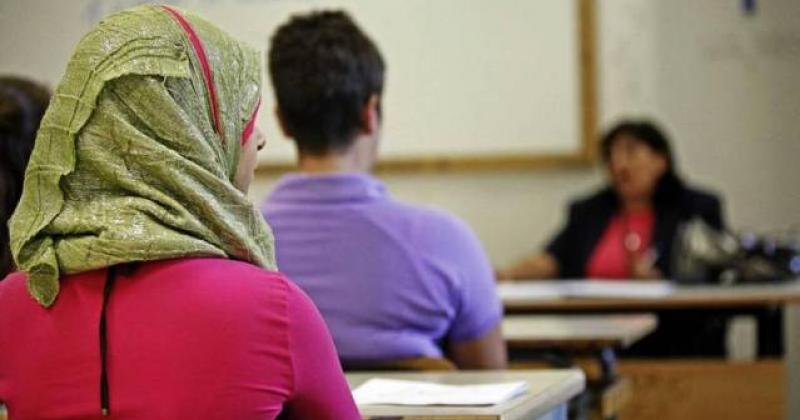Europe’s Episcopal Conferences are meeting in Switzerland to discuss how Muslims in Europe are changing. Cardinal Tauran said there is a strong risk of a community retreat. Cardinal Ricard, meanwhile, says international crises have led to an increase in Islamophobia in Europe but dialogue is still the only way forward.
Is there a risk of radicalisation of Islam in Europe? Is it possible to rebuild paths of dialogue between Christians and Muslims at a historic moment in which religion and violence are two often seen as one? These are the kinds of questions bishops and delegates from Europe’s Bishops’ Conferences in charge of relations with Muslims are trying to answer at a meeting currently taking place at the monastery of Saint Maurice in Switzerland (the oldest Western monastery still functioning, boasting an uninterrupted presence since 515). About 40 or so experts from various Churches across Europe are attending a meeting organised by the Council of European Episcopal Conferences (CCEE). The title of the meeting, which started on 13 May and runs until 15 May, is: “How Muslims in Europe change”.
Cardinal Jean Pierre Ricard, Archbishop of Bordeaux, is guiding experts in their work but one of th speeches of greatest significance was given by Cardinal Jean Louis Tauran, President of the Pontifical Council for Interreligious Dialogue. “Dialogue is necessary more than ever, first of all, because the great majority of Muslims does not accept these barbarian acts; moreover, continuing dialogue may become a sign of hope in a context of persecution, too,” Tauran said, dealing with some delicate topics and questions in his address. The cardinal underlined the fact that in recent years, various phenomena have contributed to the formation of a negative image of Islam, including “the arrival of several Muslims in the European Continent through illegal immigration ways; the appearance of Jihadists born in Europe and soon becoming ‘soldiers of Allah’; and finally, use of religion by a few Muslims to justify” acts that make Islam appear scary “(too often, those who say ‘religion’, say ‘violence’)”. “Europe has become the landing place of fundamentalist movements providing basic education to young Muslims, fostering EU retreat and rejection of the environment” in which they live, the cardinal remarked.
But it’s not all doom and gloom. One of the positive aspects of the current situation, the President of the Pontifical Council for Interreligious Dialogue recalled, is “the conviction that is affirmed more and more in Europe, that is: the need to apply the criteria of hermeneutics to the Koranic texts”. He also added that “an Ayatollah from Teheran who said last November that faith and reason are not incompatible”. Meanwhile, in January, a translation in Farsi of the Catholic Church’s Cathechism was presented at the Pontifical Gregorian University. The way Tauran sees it, Europe’s Muslim communities are the first who are called to eradicate growing Islamophobia on the continent: “They must tackle the extremists and terrorists who seek religious justification for their actions. In each case, the spontaneous question arises: how to be a Muslim and become a European?"
In his opening speech, Cardinal Ricard asked a series of underlying questions: “What is the true face of Islam?”, the Cardinal asked. “Can there be a peaceful perception of the presence of Muslims in our European societies? Are we perhaps seeing a radicalisation of some Muslims? How can we analyse the different currents sweeping through Muslim communities today? What do we think of those young people who ‘convert’ to Islam and are tempted to join the armed forces of the Islamic State?”
According to Cardinal Ricard, “the evolution of the international situation, its impact on the European continent and the attacks which have taken place in different European countries, have suddenly made us aware that the conflict in the Middle East could reach us in our daily lives”. “The drama of the expulsion of Christians in areas which have passed to the control of the Islamic State,” he explained, “has touched many members of our Christian communities. The assertion of an Islam, conqueror and warrior, by leaders of this State, has disturbed consciences.”
“We see in our societies – the Archbishop of Bordeaux remarked - an increase in Islamophobic reactions. I am struck by the fact that these are being expressed ever more openly, even in our Christian communities. We notice that a certain number of Muslims take badly the fact of being continually challenged to show their loyalty to the laws of our European societies, when they are not considered simply as a ‘fifth column’, the accomplices of a tough and conquering Islam”. To Cardinal Ricard’s mind, the response to this situation should be to “analyse with realism our situation today” and to “express our convictions once again. We know that: only the path of dialogue, awareness, collaboration and mutual respect can realistically prepare for the future. This is both a challenge for our societies and a call from the Lord.”
